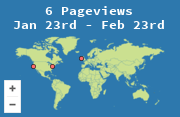“During 2010 the Minister of Basic Education, Mrs Angie Motshekga, declared that there would be a plan for schools in South Africa called Action Plan to 2014, and that this would form part of a larger vision called Schooling 2025. It is important that you as a South African should know about the Action Plan, and Schooling 2025, especially if you are a parent or guardian of a learner in a school, if you yourself are a learner, or if you are a teacher or a school principal. The plan is important because it tells you what the government will be doing to make Grades R to 12 schooling better, but also because it explains how you yourself can contribute towards making the goals of the plan and Schooling 2025 a reality.” (Dept of Basic Education, 2013)
I’m posting the Full version, English summary, and the Popular version for you. The originals are available on the website of the Dept. of Basic Education. It is available in 9 languages.
Filed under: Uncategorized | Comments Off on Action Plan to 2014: Towards the Realisation of Schooling 2025 / South Africa. Dept. of Basic Education









You must be logged in to post a comment.